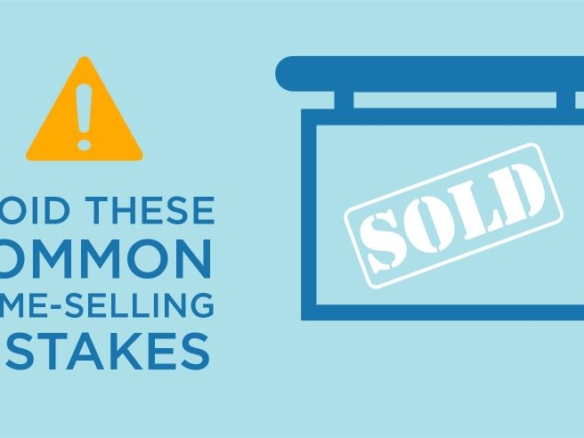Wonder what your house — or a house you might buy — is really worth?
The short answer’s easy: A house is worth whatever someone will pay for it. The long answer depends on the market and whether you’re asking a lender, an agent or a county tax assessor. But why take their word for it?
Knowing how to calculate your home’s value with the help of online tools and trained professionals better prepares you to buy, sell, refinance, tap into your home’s equity or even negotiate lower property taxes.
It can also provide a picture of your overall financial health. Nearly three-quarters (73%) of Americans say knowing the value of their home is important for precisely this reason.
Discover five different ways to determine the value of your home below.
1. Get a comparative market analysis
When you’re ready to dive deeper into your home value, you can ask a local real estate agent for a comparative market analysis, or CMA. Though not as detailed as a professional appraisal, a CMA provides an agent’s evaluation of the home and market to provide an estimate of value, typically for listing purposes.
Local real estate agents may provide a CMA for little or no cost. Keep in mind that real estate agents offer this service with hopes of being hired as your listing agent.
2. Evaluate comparable properties
One thing appraisals and AVMs have in common is their reliance on the recent sale value of comparable properties, often called “comps.” Homeowners often seek to determine their home’s value by looking at comparable properties. This is the most common way to estimate market value.
Pulling comps is one way to determine market value without paying an appraiser, but use good judgment. Just because the property next door or down the street sold doesn’t mean it’s a comp.
To choose accurate comps, comps need to be within the same range in beds, baths, garage, square footage, lot size, etc. Adjustments can be made for variations, but you can’t compare a 4 bedroom, 3 bath home with 3000 sq ft to a home that’s 6 bedroom, 4.5 baths, and almost 5000 sq ft. That’s not “comparable”. Think about which properties would interest a buyer if yours weren’t available. Look for similar size, location, condition and upgrades.
To get started:
Browse a site where MLS listings are displayed, to find the recent sale prices of comparable houses in your neighborhood.
If there aren’t enough recent sales, look at listing prices, but remember they might not be realistic.
You’ll need at least three valid comps to come up with a likely range of market value for your house.
Once you’ve chosen comparable properties, things get a little tricky. You’ll need to adjust for differences between your house and the comps, such as adding value to the comp price if it has more bedrooms than your house or subtracting value if its interior is outdated. How much you add or subtract depends on conditions in your market, which can vary widely. This is where a professional real estate agent or appraiser really comes in handy. After adjusting values, look at your highest and lowest comps. A rough estimate of your home value is somewhere in the middle.
3. Hire a professional appraiser
Lenders require an appraisal before they’ll approve a mortgage, but as a property owner, you can hire an appraiser to estimate home value at any time. An appraisers job is to provide a value based on the needs of the client. Sometimes clients want the value for a date in the past, and other times it’s a current market value for a purchase or refinance. Also worth noting, if you’re selling and a buyer questions value, showing them a recent appraisal will give them more confidence to make a better offer.
Among other things, appraisers evaluate:
Market: The region, city and neighborhood in which a home is located.
Property: Characteristics of the house, including improvements and the land it sits on.
Comparable properties: Sales, listings, vacancies, cost, depreciation and other factors for similar houses in the same market.
This information is combined to create a final opinion of value for the home and delivered in an official report.
Should I use online valuation tools?
Searching “how much is my house worth?” online reveals dozens of home value estimators. In fact, millions of U.S. homeowners who determined their home’s value used an online estimator. The technical term for these tools is automated valuation model, or AVM, and they’re typically offered by lenders or real estate sites like Zillow and Redfin.
Using public records like property transfers, deeds of ownership and tax assessments along with some mathematical modeling, these tools try to predict your home’s value based on recent sales and listing prices in the area.
Most AVMs on real estate sites are generally for marketing and lead generation purposes. Are these values accurate? Very rarely are they even close to accurate. The problem is the AVM’s don’t have all the information needed to determine the right value. The home’s unique characteristics, upgrades, special location, etc. all play a factor in determining value. None of AVM’s take this into account.
The AVMs used by lenders and real estate professionals are different. These tools use a “confidence score” to indicate how close the AVM provider thinks an estimate is to market value. A confidence score of 90% means the estimate is within 10% of market value. An estimate within 10% of market value still means AVM values can vary quite a bit from actual market value.
Professional-grade AVMs with confidence scores linked to accuracy are a step up from the real estate sites. But you should always talk to a local real estate expert to get more insight into any online valuation.
Why knowing a home’s value is important
Knowing a home’s value allows you to evaluate what you can afford, determine whether a listing is priced appropriately and decide how to price your own home.
And the benefits of finding a home’s value don’t end with a purchase or sale: Refinances, home equity lines of credit, insurance premiums and annual property taxes are all based on home value.
Determining your home’s value means greater control over these processes. Property taxes are almost always open to appeal, for example. If you can prove an assessment is too high by pulling comps, you may be rewarded with a lower tax bill.





Join The Discussion